Any Questions?
Understanding Prostate Cancer: What Every Man Needs to Know
Prostate cancer is the most commonly diagnosed cancer among Australian men, with over 25,000 new cases each year. It accounts for approximately 16% of all newly diagnosed cancers in Australia. Despite significant advances in treatment, more than 3,500 Australian men still die from prostate cancer annually.
Early detection can significantly improve outcomes, yet many men delay or avoid screening due to stigma, fear, or a lack of awareness. These challenges can be even more pronounced in multicultural and First Nations communities, where language barriers, cultural beliefs, and health access issues may prevent timely diagnosis.
What Is Prostate Cancer?
The prostate is a small gland in men located below the bladder. It helps produce seminal fluid. Prostate cancer occurs when cells in this gland grow in an uncontrolled manner. While some forms of prostate cancer grow slowly and may not cause serious harm, others can be aggressive and spread quickly if not detected early.
Common Signs and Symptoms
Prostate cancer in its early stages often presents no symptoms. However, when symptoms do occur, they may include:
- Difficulty starting or stopping urination
- Weak or interrupted urine flow
- Frequent urination, particularly at night
- Pain or burning during urination or ejaculation
- Blood in the urine or semen
- Pain in the lower back, hips, or pelvis
It’s important to note that non-cancerous conditions can also cause these symptoms. However, any persistent changes should be checked by a doctor.
Getting Checked: What’s Involved?
PSA Blood Test
This test measures the level of
prostate-specific antigen (PSA) in your blood. Elevated PSA levels may suggest prostate cancer or other prostate conditions.
Digital Rectal Exam (DRE)
A doctor examines the prostate by feeling it through the rectum to detect abnormalities in size, shape, or texture.
Men at average risk should start discussing screening options at age 50. Men with a family history of prostate cancer or those of African descent should begin discussions from age 45.
Who’s at Risk?
The main risk factors for prostate cancer include:
- Age – Risk increases significantly after 50
- Family History – Having a father or brother with prostate cancer doubles the risk
- Ethnicity – Men of African descent face a higher risk
- Lifestyle – A diet high in red meat and low in fruits and vegetables may contribute
Understanding your personal risk factors can help with early detection and informed decision-making.
Living with Prostate Cancer
Treatment Options
Treatment depends on the cancer’s stage and grade, as well as your general health and preferences. Options may include:
- Active surveillance – Monitoring the cancer closely without immediate treatment
- Surgery – Removal of the prostate gland (prostatectomy)
- Radiation therapy – Targeted radiation to kill cancer cells
- Hormone therapy – Reducing hormones that help the cancer grow
- Chemotherapy – Drugs to destroy rapidly growing cancer cells
New approaches, such as immunotherapy and targeted therapy, are showing promise in more advanced cases.
Managing Life After Diagnosis
Living with prostate cancer extends beyond medical treatment. It may involve:
- Maintaining physical health – Through a nutritious diet and regular physical activity
- Mental wellbeing – Accessing counselling and support groups
- Managing sexual health – Some treatments can affect sexual function
- Ongoing monitoring – Regular check-ups to track progress and detect recurrence
Inclusive Support at FOCUS Connect
At FOCUS Connect, we understand the unique challenges that multicultural and First Nations communities face regarding cancer awareness, early detection, and access to care.
As a not-for-profit organisation with over 40 years of experience supporting culturally diverse communities in the Macarthur region, we’re committed to providing respectful, inclusive, and culturally appropriate support.
Through the Support at Home Program via My Aged Care, we offer personalised, culturally sensitive, bilingual care for older Australians in South West Sydney and the Northern Sydney suburbs. As a trusted aged care provider in these regions, our goal is to help people stay healthy, independent, and informed, especially when it comes to critical men’s health issues like prostate cancer.
Early detection saves lives.
Let’s keep the conversation going and ensure every man has the chance to live well, stay well, and receive the inclusive support he deserves.
Related Articles

FOCUS Connect, a registered not-for-profit charity, provides practical assistance and support services to disadvantaged and marginalised individuals. As a My Aged Care provider, we offer Support at Home and Commonwealth Home Support Programme services across South West and Northern Sydney. Additionally, we are a leading provider of community services to multicultural and culturally and linguistically diverse (CALD) populations across South West Sydney.
Need Support or Know Someone Who Does?
If you need support, call us at 02 4627 1188 or contact us via our online enquiry form, and we will get back to you shortly to discuss your needs and how we can assist you. If you know someone who could benefit from our services, refer them to FOCUS Connect to help them receive the support they need and deserve.














